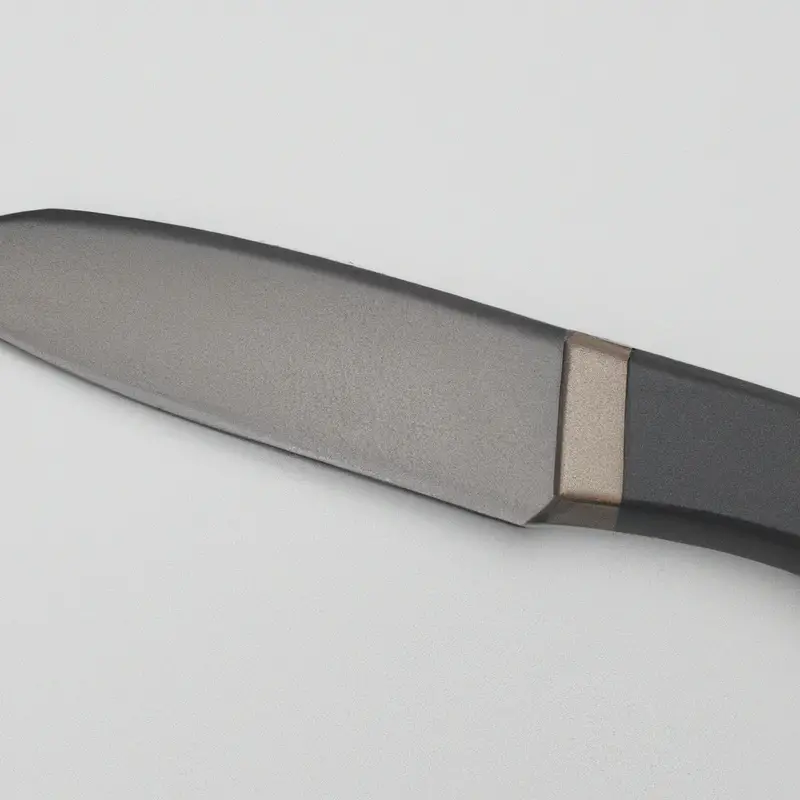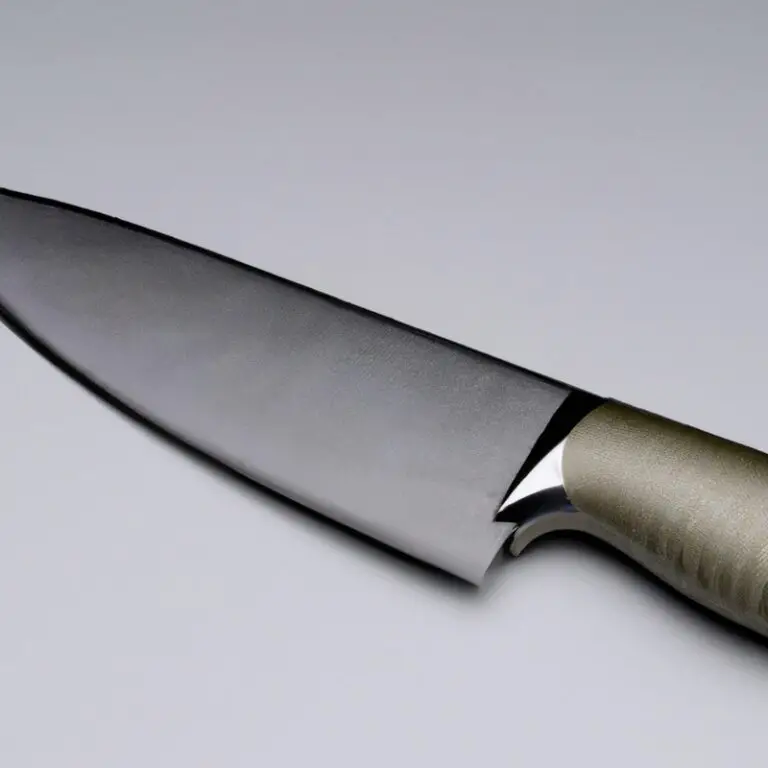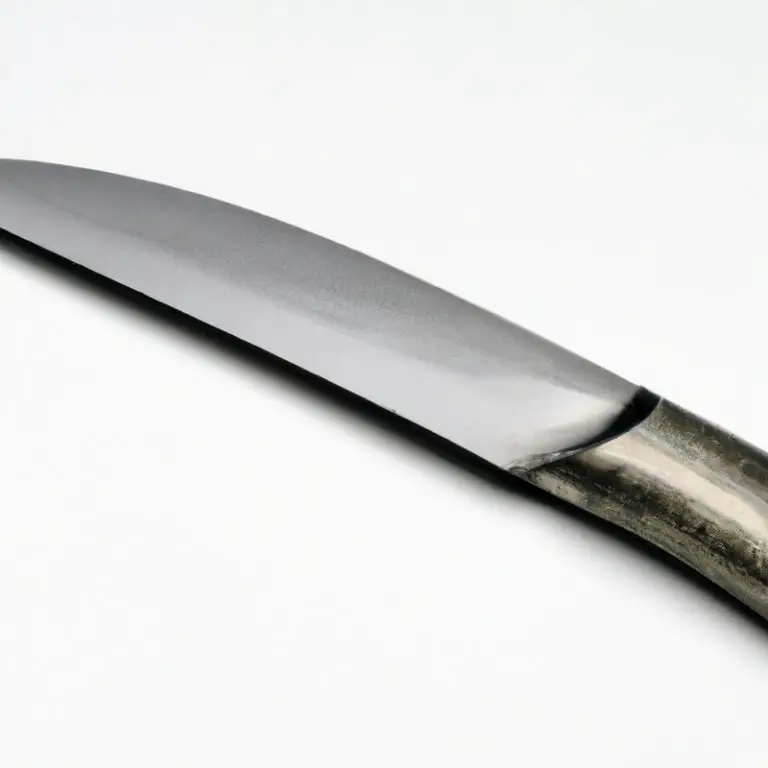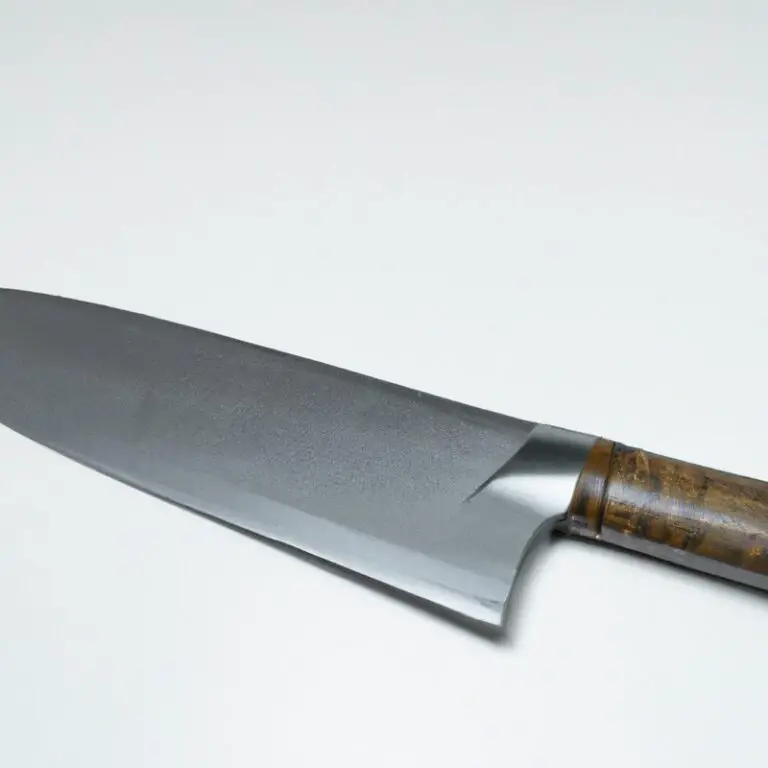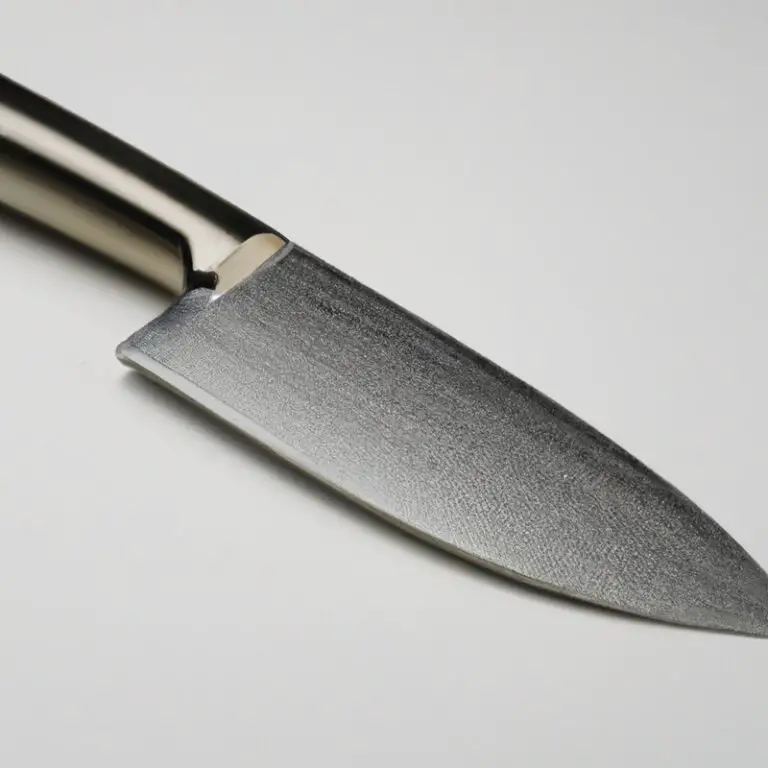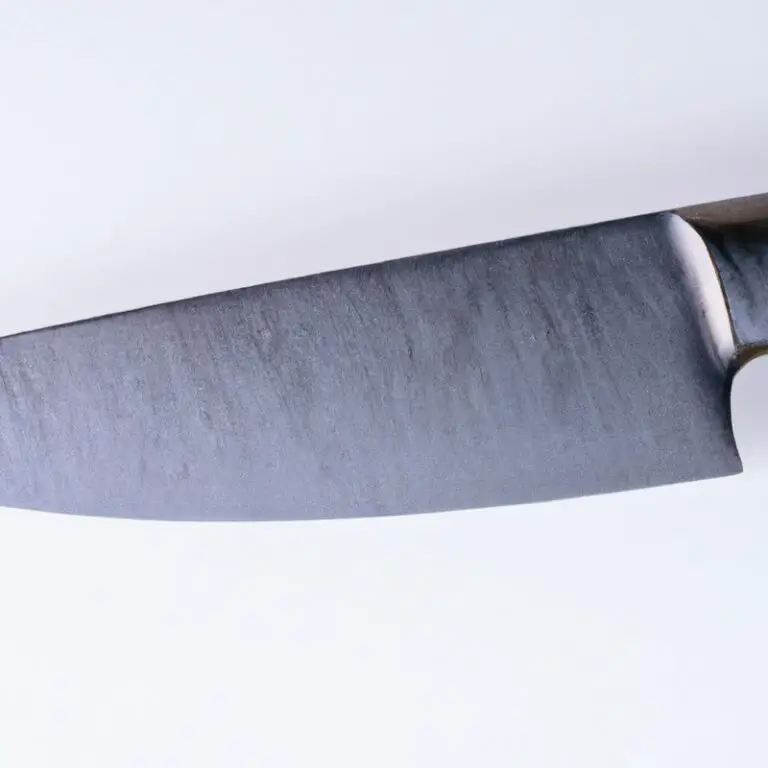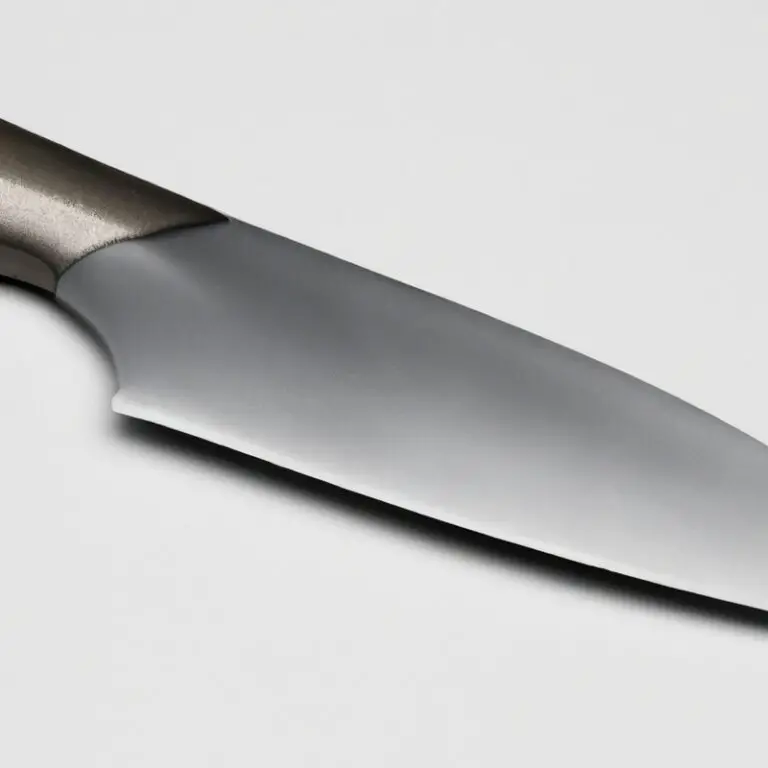How To Prevent Food From Oxidizing When Using a Gyuto Knife? Easy Tips
Key Takeaways:
- Use a high-quality Gyuto knife with a sharp edge to ensure clean cutting and minimize food damage.
- Cut smaller portions of food at a time to reduce exposure to air and prevent oxidation.
- Store cut food in an airtight container or wrap it tightly in plastic to prevent oxygen exposure.
- Consider using a natural antioxidant, like vitamin C, to coat cut fruits and vegetables and slow down oxidation.
Are you tired of your freshly sliced food turning brown and losing flavor within minutes? The culprit may be oxidation, a natural chemical process that occurs when food is exposed to air.
But fear not, as there are ways to prevent this from happening, especially when using a Gyuto knife.
As a seasoned chef, I’ve tested and perfected techniques to ensure sliced food retains its color and flavor. In this blog, I’ll take you through the science behind food oxidation, the importance of knife sharpness, cutting board material, and other best practices for preserving your food’s freshness.
| Preventive Measures | |
| 1 | Keep the knife clean and dry between use |
| 2 | Store cut fruits and vegetables in an airtight container |
| 3 | Coat cut fruits and vegetables with lemon juice or vinegar |
| 4 | Wrap cut fruits and vegetables with a damp paper towel before storing |
| 5 | Avoid using reactive cookware when cooking acidic foods |
The Science of Food Oxidation and How It Affects Color and Flavor
Food oxidation is a natural chemical process that occurs when oxygen interacts with organic molecules in food. This process can result in color and flavor changes, leading to a loss of quality and nutritional value over time.
When exposed to air, certain foods, such as fruits, vegetables, and meat, can turn brown, lose their texture, and become less appetizing.
Oxidation can also cause food to spoil more quickly, making it important to take steps to prevent it when preparing and storing food. By using the right cutting techniques, choosing the right tools and materials, and employing proper food preservation methods, you can help slow down this process, preserving the freshness, taste, and appearance of your food for longer periods of time.
Understanding the Role of Gyuto Knife in Food Oxidation
A Gyuto knife is a Japanese-style chef’s knife that has a sharp and thin blade, perfect for slicing and dicing food items. However, while using the Gyuto knife, it’s important to understand its role in food oxidation.
Food oxidation occurs when the enzymes in food come into contact with air, resulting in a change in color and flavor.
When a blunt knife is used, it increases the contact with air, resulting in faster oxidation of the food item. A sharp Gyuto knife, on the other hand, minimizes the contact with air, reducing the oxidation process.
Therefore, it’s crucial to ensure that the Gyuto knife is sharp before using it to slice food to prevent oxidation.
The Importance of Knife Sharpness in Preventing Food Oxidation
The sharpness of a knife plays a crucial role in preventing food oxidation. When a dull knife is used, it crushes the food’s cell walls, releasing enzymes that promote oxidation and discoloration.
The result is that the food turns brown and loses its original flavor.
A sharp Gyuto knife, on the other hand, cuts through the food cleanly and without crushing the cells, reducing the amount of enzymes that get released. This helps the food to maintain its original color, texture, and flavor.
Therefore, it is essential to keep the blade of your Gyuto knife sharp using a sharpening stone or honing steel to prevent food oxidation.
Choosing the Right Cutting Board Material for Oxidation Prevention
Choosing the right cutting board material is crucial in preventing oxidation of food when using a Gyuto knife. The type of material you choose can affect food color and flavor in the long run.
One of the best materials for cutting boards is bamboo.
It is a non-porous material that doesn’t retain moisture and is highly resistant to bacteria. Its hard surface is gentle on knives, making it ideal for a Gyuto knife.
Plastic cutting boards are also a popular choice because they are easy to clean and don’t absorb bacteria.
However, over time, they can develop scratches that may harbor bacteria, leading to cross-contamination. Wooden cutting boards are also an option, but they require regular oiling to prevent absorption of moisture and bacteria.
Softwoods such as pine aren’t recommended for use with a Gyuto knife as they can blunt the knife easily.
Ultimately, the best cutting board material for oxidation prevention depends on your personal preference, lifestyle, and budget. It’s important to consider the material’s durability, resistance to bacteria, ease of cleaning, and gentleness on the knife.
How to Slice Food and Keep it from Oxidizing with a Gyuto Knife
To slice food and prevent oxidation when using a Gyuto knife, follow these steps:
- Use a sharp Gyuto knife: A dull knife crushes the food instead of slicing it, which causes more surface area for oxygen to interact with and can hasten oxidation.
- Cut food into small batches: When sliced in small batches, food is exposed to less oxygen, which can slow down the oxidation process.
- Cut in a consistent manner: Make sure to use a fluid and consistent motion when slicing, as this helps to reduce the amount of oxygen that comes in contact with the food.
- Use a clean cutting board: Residue from previous cutting sessions can lead to oxidation, so ensure your cutting board is completely clean.
- Store food in an airtight container: This helps to minimize oxygen exposure and ensures that your food lasts longer.
Remember, oxidation is a natural process that can’t be prevented altogether. However, following these steps can help to slow down the rate of oxidation and help your food stay fresher for longer.
Preparing Food in Small Batches to Prevent Oxidation
Preparing food in small batches is an effective way to prevent oxidation. When food is cut or sliced, it exposes more surface area to oxygen, resulting in oxidation.
By reducing the amount of food exposed to air, you can slow down the process of oxidation.
This is particularly important when using a Gyuto knife, which cuts food with great precision and exposes a larger surface area. To minimize the risk of oxidation, it is advisable to prepare small amounts of food at a time.
This will ensure that the food is used up before it has a chance to oxidize.
Additionally, you can cover the food with a damp cloth or plastic wrap to further protect it from exposure to air. By preparing food in small batches, you not only reduce the risk of oxidation but also ensure that the food is fresh and of the highest quality.
This is particularly important when preparing delicate ingredients such as herbs, fruits, and vegetables, which are highly sensitive to oxidation.
Best Practices for Storing Food to Prevent Oxidation
To prevent food from oxidizing, it is essential to follow the best practices for storing food. Below are some key practices:
- Store food in airtight containers to prevent air exposure that can lead to oxidation.
- Use plastic wrap or aluminum foil to cover fruits and vegetables that have been cut to keep them from drying out.
- Store produce in the crisper drawer of the refrigerator to maintain its freshness.
- Keep your refrigerator clean to prevent the growth of bacteria that can cause food to spoil.
- Store food in a cool, dry place away from direct sunlight and heat.
By following these best practices, you can extend the shelf life of your food and preserve their color and flavor.
Using Natural Antioxidants from Herbs and Citrus Fruits to Preserve Food Color and Flavor
Using natural antioxidants from herbs and citrus fruits is an effective way to preserve food color and flavor. These antioxidants, such as vitamin C, help neutralize free radicals that cause food oxidation.
Herbs like rosemary, thyme, and oregano, and citrus fruits like lemon and lime, are rich sources of natural antioxidants.
Adding these ingredients to marinades, dressings, and sauces can help preserve the color and flavor of food while also providing additional health benefits. Additionally, using vacuum-sealed containers and storing food in the refrigerator can also help prolong its shelf life and prevent oxidation.
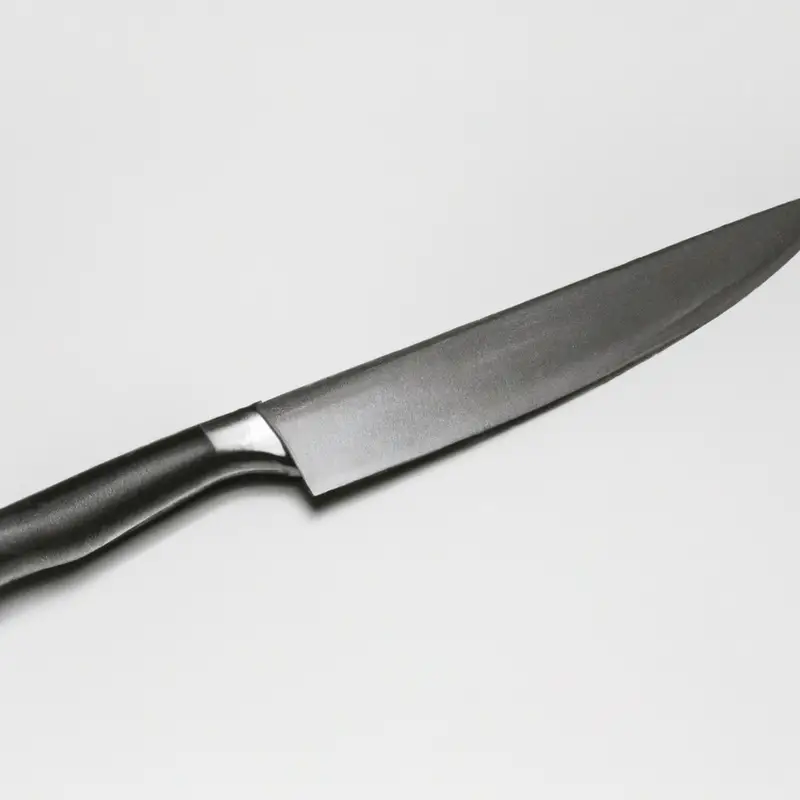
Cleaning and Maintaining Gyuto Knife to Prevent Oxidation of Food
To prevent the oxidation of food, it is crucial to keep your Gyuto knife clean and properly maintained. After each use, clean the knife with warm water and mild soap, then dry it immediately with a non-abrasive cloth.
Avoid soaking the knife, as this can lead to rust and oxidation.
To maintain the sharpness of the blade, it is important to use a honing or sharpening tool regularly. A dull blade not only affects the appearance of the cut, but it also damages the cells of the food, leading to quicker oxidation.
Additionally, storing your Gyuto knife properly is important.
Avoid storing it in a damp or humid environment, as this can lead to rust. Consider storing your knife in a knife block or magnetic knife holder, and always cover the blade with a protective sheath when not in use.
Regular maintenance of your Gyuto knife not only prevents oxidation of food, but also ensures that the knife remains safe and functional for a longer period of time.
Enhancing the Shelf Life of Food with Vacuum Sealing and Packaging Techniques
Enhancing the shelf life of food can be achieved through vacuum sealing and packaging techniques. Vacuum sealing refers to the process of removing air from a package using a vacuum sealer machine.
By removing the air, the growth of bacteria, mold, and other spoilage factors are significantly slowed down, resulting in food staying fresh for longer periods.
The packaging also plays a vital role in extending the shelf life of food. Airtight packaging reduces the amount of oxygen that comes in contact with the food, slowing down the oxidation process, thus keeping the food fresh for longer.
Additionally, packaging materials such as Mylar bags and oxygen absorbers can help to increase the shelf life of food even further.
Using vacuum sealing and packaging techniques can help to prevent food from spoiling too quickly, allowing you to enjoy your food for longer while reducing waste.
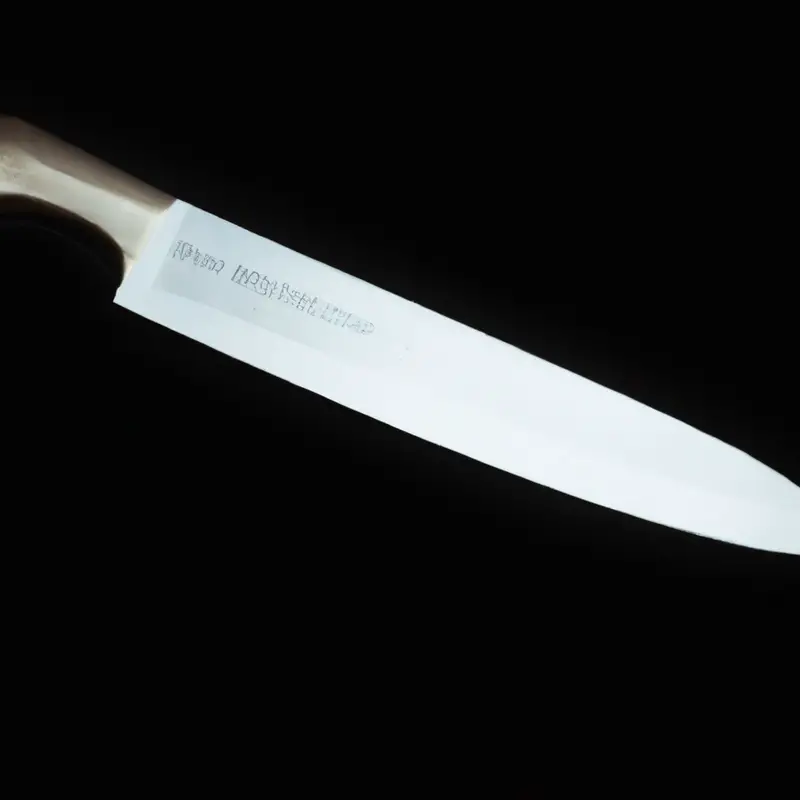
Final Verdict
Preventing food from oxidizing while using a Gyuto knife is essential not only for preserving flavor but also for ensuring the safety and health of those who consume it. By understanding the science behind food oxidation, choosing the right knife and cutting board material, and adopting best practices for slicing and storing food, you can reduce the risk of deterioration and extend the shelf life of your ingredients.
Additionally, using natural antioxidants and vacuum sealing techniques can enhance the preservation process even further.
By implementing these practices and maintaining your Gyuto knife with care, you can become a more skilled and responsible chef, providing delicious and nutritious meals for yourself and those around you. Trust and credibility are built by consistently implementing best practices, and these tips will serve you well in this regard.

